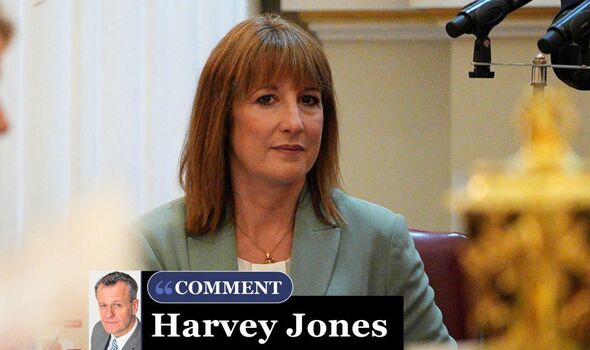Business
Rachel Reeves Faces Economic Crisis as UK Prepares for Autumn Challenges

The United Kingdom is grappling with a significant economic downturn, marked by rising unemployment, increasing inflation, and soaring national debt. In recent weeks, Chancellor of the Exchequer Rachel Reeves has faced mounting pressures as the country edges closer to a financial crisis. The budget deficit for June 2023 reached an alarming £20.7 billion, exceeding forecasts by £4 billion and surpassing last year’s figures by £7 billion. This figure represents the second highest June deficit on record, trailing only the peak observed during the pandemic in 2020.
The deteriorating financial landscape has not gone unnoticed. Former Bank of England economist Andrew Sentance now anticipates that the annual deficit may reach £170 billion, which is over £50 billion higher than government projections. This sobering statistic underscores the challenges facing the UK’s public finances, with national debt already standing at £2.87 trillion and costing the government more than £100 billion annually in interest payments.
As the situation intensifies, the International Monetary Fund has cautioned that Reeves may need to reconsider key policies, including the potential abandonment of the triple lock on pensions and the introduction of new taxes or charges for National Health Service (NHS) services. In response, Reeves issued a statement asserting that the IMF report validates her economic strategy, a claim that has drawn skepticism from various quarters.
Reeves has faced criticism for her handling of public sector pay, particularly after endorsing significant salary increases last year that have emboldened union demands. Teachers, doctors, and nurses are among those pushing for further pay raises, leading to tensions with backbench members of her party. The Unite union, a major financial supporter of Labour, has expressed dissatisfaction, calling for more aggressive tax policies to fund public services.
The economic challenges are compounded by rising unemployment, which recently hit a four-year high. Economic growth is faltering, with GDP contracting by 0.1% in April and 0.3% in May. Charlie Nunn, chief executive of Lloyds Bank, has voiced concerns that further tax increases could stifle growth, a sentiment echoed by many in the business community.
As the government prepares for an autumn Budget, Reeves is reportedly considering tax increases amounting to £30 billion. This follows her previous commitment to avoid repeating last year’s tax grab of £40 billion. This looming financial strategy has led to widespread anxiety among the public, particularly among families already struggling with the cost of living.
Market reactions illustrate the growing concern, with the value of the pound dropping following disappointing retail sales figures. Consumer confidence is waning, and voters brace for potential economic hardship. With the prospect of further financial strain, the outlook for autumn appears increasingly grim.
As the UK navigates these turbulent waters, the decisions made in the upcoming Budget will be critical. Citizens are left anxiously awaiting the Chancellor’s next moves, knowing that their incomes, savings, and overall economic stability hang in the balance.
-

 Health2 months ago
Health2 months agoNeurologist Warns Excessive Use of Supplements Can Harm Brain
-

 Health3 months ago
Health3 months agoFiona Phillips’ Husband Shares Heartfelt Update on Her Alzheimer’s Journey
-

 Science3 weeks ago
Science3 weeks agoBrian Cox Addresses Claims of Alien Probe in 3I/ATLAS Discovery
-

 Science3 weeks ago
Science3 weeks agoNASA Investigates Unusual Comet 3I/ATLAS; New Findings Emerge
-

 Science3 weeks ago
Science3 weeks agoScientists Examine 3I/ATLAS: Alien Artifact or Cosmic Oddity?
-

 Science2 weeks ago
Science2 weeks agoNASA Investigates Speedy Object 3I/ATLAS, Sparking Speculation
-

 Entertainment4 months ago
Entertainment4 months agoKerry Katona Discusses Future Baby Plans and Brian McFadden’s Wedding
-

 World2 months ago
World2 months agoCole Palmer’s Cryptic Message to Kobbie Mainoo Following Loan Talks
-

 Entertainment3 months ago
Entertainment3 months agoEmmerdale Faces Tension as Dylan and April’s Lives Hang in the Balance
-

 Science2 weeks ago
Science2 weeks agoNASA Scientists Explore Origins of 3I/ATLAS, a Fast-Moving Visitor
-

 Entertainment4 months ago
Entertainment4 months agoLove Island Star Toni Laite’s Mother Expresses Disappointment Over Coupling Decision
-

 Entertainment3 months ago
Entertainment3 months agoMajor Cast Changes at Coronation Street: Exits and Returns in 2025









